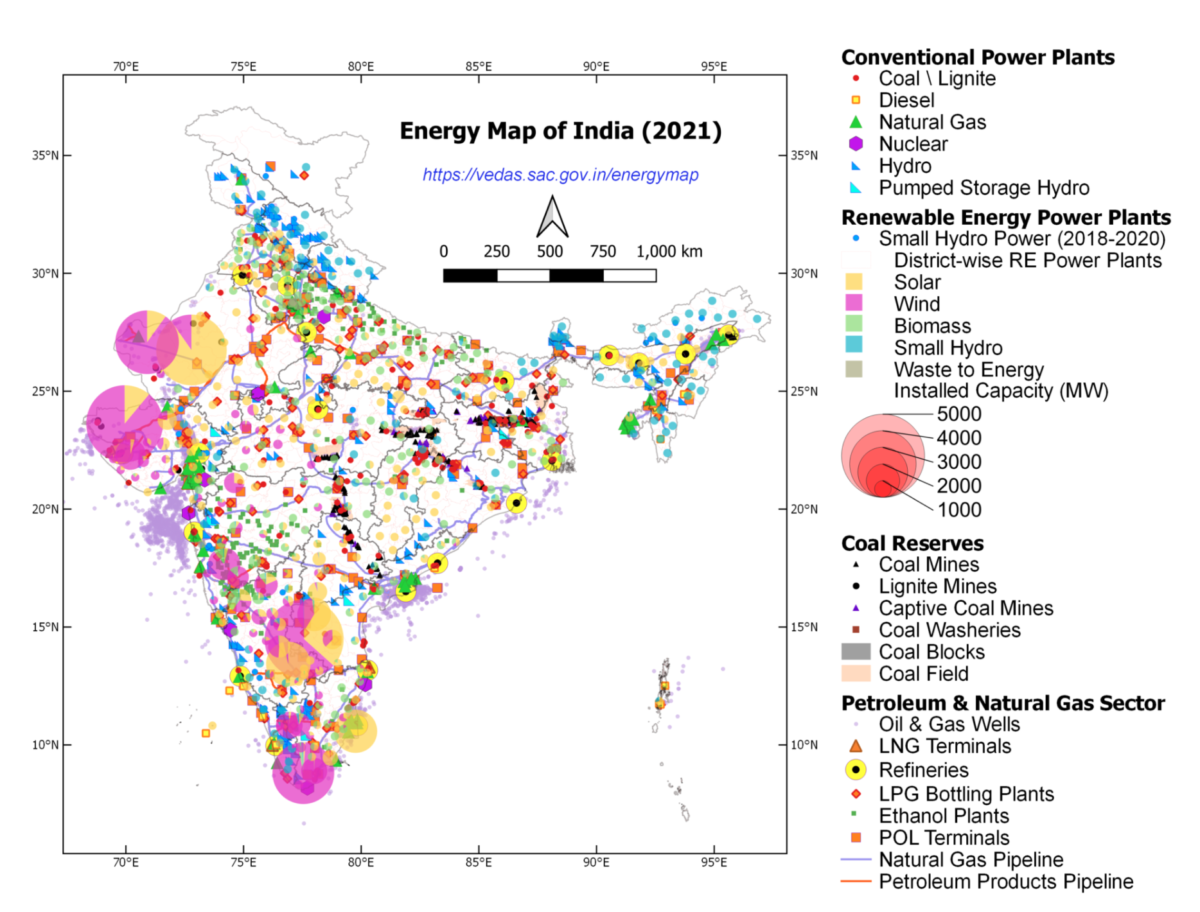From pv magazine India
NITI Aayog, an Indian government think tank, has collaborated with the Indian Space Research Organisation (ISRO) to develop a comprehensive geographic information system (GIS) energy map of India with the support of the government of India.
The GIS map provides a holistic picture of all the energy resources of the country, enabling the visualization of energy installations such as conventional power plants, oil and gas wells, petroleum refineries, coal fields and coal blocks, district-wise data on renewable energy power plants, and renewable energy resource potential through 27 thematic layers.
The map attempts to identify and locate all primary and secondary sources of energy and their transportation/transmission networks to provide a comprehensive view of energy production and distribution in the country.
“It is a unique effort aimed at integrating energy data scattered across multiple organizations and to present it in a consolidated, visually appealing graphical manner. It leverages the latest advancements in web-GIS technology and open-source software to make it interactive and user-friendly. The Geospatial Energy Map of India will be useful in planning and making investment decisions. It will also aid in disaster management using available energy assets,” said the government in a press release.
Dr. Rajiv Kumar, vice chairman of NITI Aayog, said that GIS-mapping of energy assets will ensure real-time, integrated energy sector planning in India.
“Energy markets have immense potential to bring in efficiency gains. Going forward, GIS-based mapping of energy assets will be advantageous to all concerned stakeholders and will help in accelerating the policy-making process,” said Kumar. “Fragmented data has been brought together; this will be a great research instrument.”
The GIS-based Energy Map of India can be accessed at https://vedas.sac.gov.in/energymap.
This content is protected by copyright and may not be reused. If you want to cooperate with us and would like to reuse some of our content, please contact: editors@pv-magazine.com.




1 comment
By submitting this form you agree to pv magazine using your data for the purposes of publishing your comment.
Your personal data will only be disclosed or otherwise transmitted to third parties for the purposes of spam filtering or if this is necessary for technical maintenance of the website. Any other transfer to third parties will not take place unless this is justified on the basis of applicable data protection regulations or if pv magazine is legally obliged to do so.
You may revoke this consent at any time with effect for the future, in which case your personal data will be deleted immediately. Otherwise, your data will be deleted if pv magazine has processed your request or the purpose of data storage is fulfilled.
Further information on data privacy can be found in our Data Protection Policy.